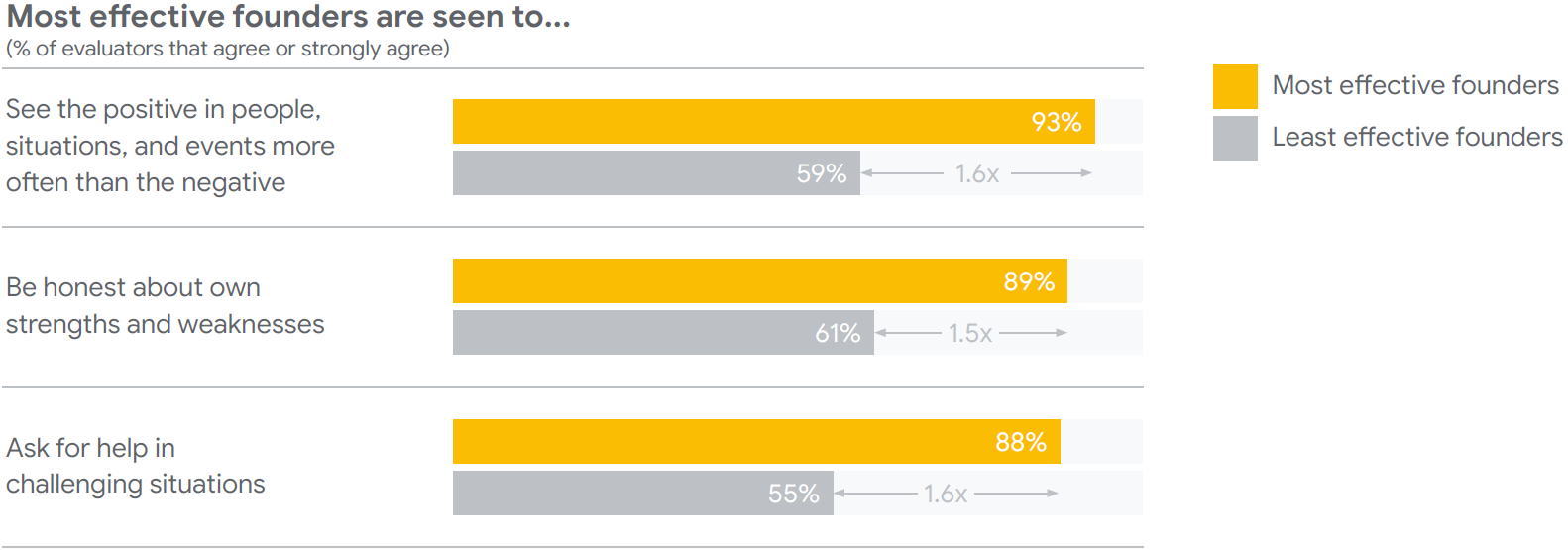The need for balance
A fascinating study by Google finds that founders need to balance maintaining clarity of vision with constant learning:
90%+ of respondents agreed that effective founders should set and drive towards hard, meaningful goals
72% of the most effective founders actively invite others to disagree with them
Founders by default tend to value the former much more - only 3% of founders said that they consider inviting disagreement important to effective leadership (vs 42% for cofounders and employees). Choosing persistence over adaptability can often spell doom for a startup.
This is all the more so the case in ecommerce, where an effective founder has to be an expert not only in product design, manufacturing, and logistics but also branding and multi-channel marketing.
The first thing we typically encourage our portfolio companies to do is make sure they have a framework in place that integrates constant learning into their strategy:
Founders need to be honest with themselves on which elements of their business require review;
They then need to order-rank those based on how important they are to their business;
And determine how they can most efficiently run experiments to get the clarity they need
A few general tips on actually applying this framework:
Be a data nerd: Make sure you are clear on the KPIs you will be monitoring and how long each experiment will last. Costs have a way of blowing up otherwise.
Speak with the experts: If an experiment might be costly, even cash-starved startups should think about paying a few $100 to a Mentorpass guru to advise you on whether - and how - to move forward.
Listen to your teammates: Even if you don’t act on some of their suggestions, letting your team members feel that they are being heard is huge for morale.
Stay grounded: To stay sane, talk to your customers not just to get their feedback but also for affirmation.
Constantly looking for knowledge gaps is critical to building out a startup but can be psychologically draining, limiting your ability to actually act on the insights you gain. To address this, one VC firm even launched a coaching platform to tackle burnout - check out Pilea.
We would recommend just going right back to that Google study - try and stay positive, and when pushed to your limits don’t be shy about asking for help:
This is part of the reason why as a VC we are always happy to connect with founders actively looking for guidance - those tend to be some of the most effective operators. Feel free to ping us anytime if there’s anything you want to compare notes around!
< Previous: The problem with agencies
Next: Why data matters >

Join our mailing list to be notified when new posts go live


